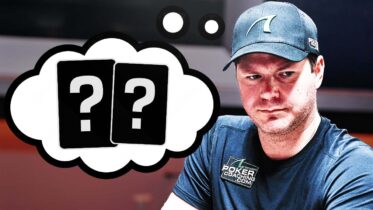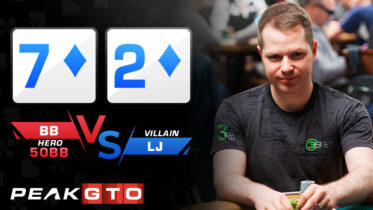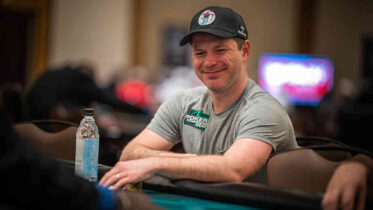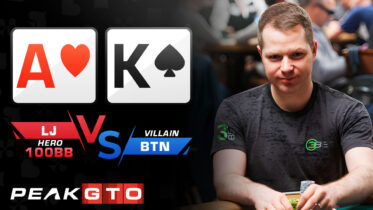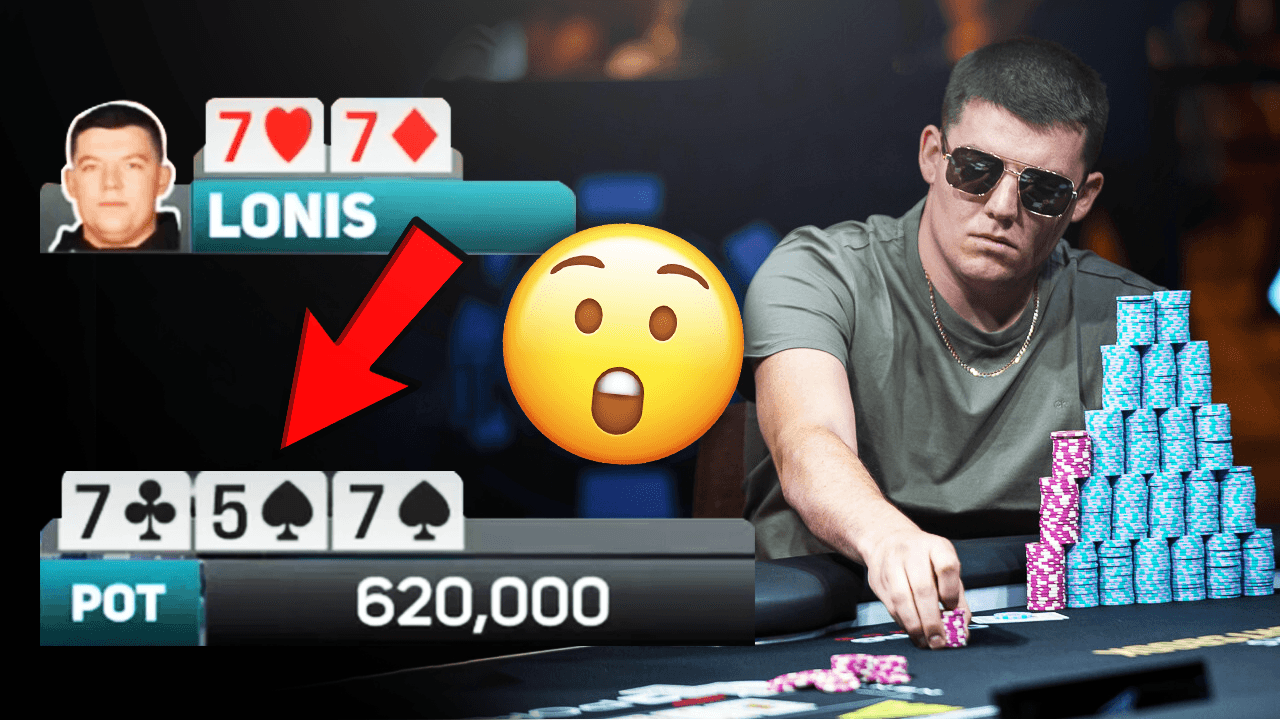Poker is a game whose complexity changes depending on the way you look at it. You can play poker at the most basic level and never think about the complexities of the game, or you can get very deep into the weeds and play poker at a much deeper level.
Most novice players start by playing with the most basic poker level, looking at their cards and the board, and trying to make the best hand possible.
As their understanding of the game grows, they start thinking about their opponents’ cards, bet sizing, betting and calling frequencies, hand ranges, and other more complex concepts.
Understanding all these elements of poker is necessary if you want to be a big winner in the game, but it can also lead you to make mistakes by leveling yourself into thinking things are happening that are not really there.
In this article, we are going to look into the idea of leveling in poker, explain how different levels in poker work, and try to get to the bottom of whether or not you should think in terms of levels in poker these days.
What Is Leveling in Poker?
The first question we must answer if we are going to discuss leveling in poker is what is leveling and how does it work?
The concept of leveling was first introduced to the poker world by David Sklansky in his book “The Theory of Poker,” and it is described as thinking about the game of poker at different possible levels.
Basically, anytime you think past the hand you are holding, you are engaging in poker leveling. However, there are different depths as to how deep you can go with leveling.
Here are a few examples of leveling in poker:
- First Level: What hand do I have?
- Second Level: What hand does my opponent have?
- Third Level: What hand does my opponent think I have?
- Fourth Level: What hand does my opponent think I think he has?
- Fifth Level: What hand does my opponent think I think he thinks I have?

You can go as deep down the rabbit hole as you want with leveling, but it is important to note that anytime you engage in leveling, you are also engaging in exploitative poker and thinking about ways to deviate from optimal poker strategy.
Note that anytime you deviate from optimal strategy in poker, you are also exposing yourself to getting exploited yourself, as your strategy now has flows.
The truth about leveling is that most elite poker players these days don’t engage in it at all, as they try to play a semblance of a GTO poker strategy, which does not concern itself with what anyone thinks or even what the opponent’s hand is in the first place.
More on that later, but for the time being, let’s take a look at an example of leveling in poker to demonstrate exactly how it looks and what it might entail.
Poker Leveling Example
Playing in a $1/2 cash game at your local casino, you are sitting down with just over $700 in your stack. In the cutoff, you raise it to $6 holding JsTs, and you get called by both the small blind and the big blind, both of whom cover you.
With $18 in the pot, the dealer deals out As8c6c, and both your opponents check to you. You fire out a $12 c-bet, which gets called by both players.
The turn brings the Ks, and both your opponents check again. You decide to take the aggressive route and bet $45 into the $54 pot. This time around, only the big blind calls, and you go to the river.
With $144 now in the pot, you see the river card of 3d, a complete blank. Your opponent checks, and you bet $100, trying to get your opponent to fold a flush draw, a weak Ace, or a hand like 8x or 6x they might have stuck around with.
At this point, your opponent raises it to $250, and you still have $536 behind. You have only J-high, and your opponent is representing a big hand, so you should be folding.
However, this is where the leveling comes into play. You decide that your opponent is likely to have a busted club draw or a buster straight draw quite often. You don’t need to go all-in to get him to fold such a hand, so you 3-bet it right back to $350.

Your opponent looks back at his hand. Indeed, he has just 9d7d. Yet, he takes things to the next level and decides that you, too, are holding nothing more than a busted flush draw and are trying to bluff him off his hand.
Your opponent goes all-in, and you are forced to fold your J-high, although there have been extreme cases of leveling where players will even make a call with a hand as weak as this, putting their opponent on an exact hand.
Both players in this example took leveling to an extreme and decided to make plays that possibly deviated from the optimal strategy, engaging in the “I know that he knows” kind of thinking and opening themselves to getting exploited in return.
In this particular case, you got absolutely owned and lost the maximum due to engaging in leveling, while your opponent was lucky enough to win big.
However, leveling can easily go wrong both ways, and it is one of those things that can make you look like a genius or an idiot, depending simply on the outcome in one particular case.
Should I Be Leveling In Poker?
Looking at the previous example, it is only fair to ask whether leveling in poker makes any sense and whether or not you should ever engage in it.
The truth is that poker leveling leads to a negative outcome more often than you would think, and regardless of how good you think you are at it, it is more likely to cost you money than improve your win rate.
While leveling can make sense against very bad poker players who are very easy to read, against most semi-capable players (or better), you should usually not try to engage in leveling.
One possible benefit of sometimes engaging in leveling is to make yourself unpredictable and a bit scary to play against, but this alone is probably not worth enough to allow yourself to make the costly mistakes that often come from leveling.
If you want to be a truly elite poker player, stay away from leveling too often and learn a fundamentally strong poker strategy based on the game theory optimal approach to the game.
How Should I Play Instead?
It took many years of playing poker for us to discover that the game of poker is really not about the particular two cards we are holding or the particular two cards our opponents are, but instead about poker ranges, frequencies, and bet sizes.
Elite poker players today all play a form of GTO poker strategy, an optimal strategy that does not concern itself with any kind of leveling wars at any time.
Instead, the strategy focuses on playing the right hand ranges at the correct frequencies in different situations and making every play at the right frequency on every street of every poker hand.
If you want to compete at a serious level in poker these days, you should be trying to learn GTO poker strategy and all it entails instead of engaging in silly leveling and trying to outwit your opponents in this way.
While leveling can work at times, there is no guarantee it will, while a strong fundamental poker strategy will guarantee you come out on top over the long run and have plenty of fun in the process.
